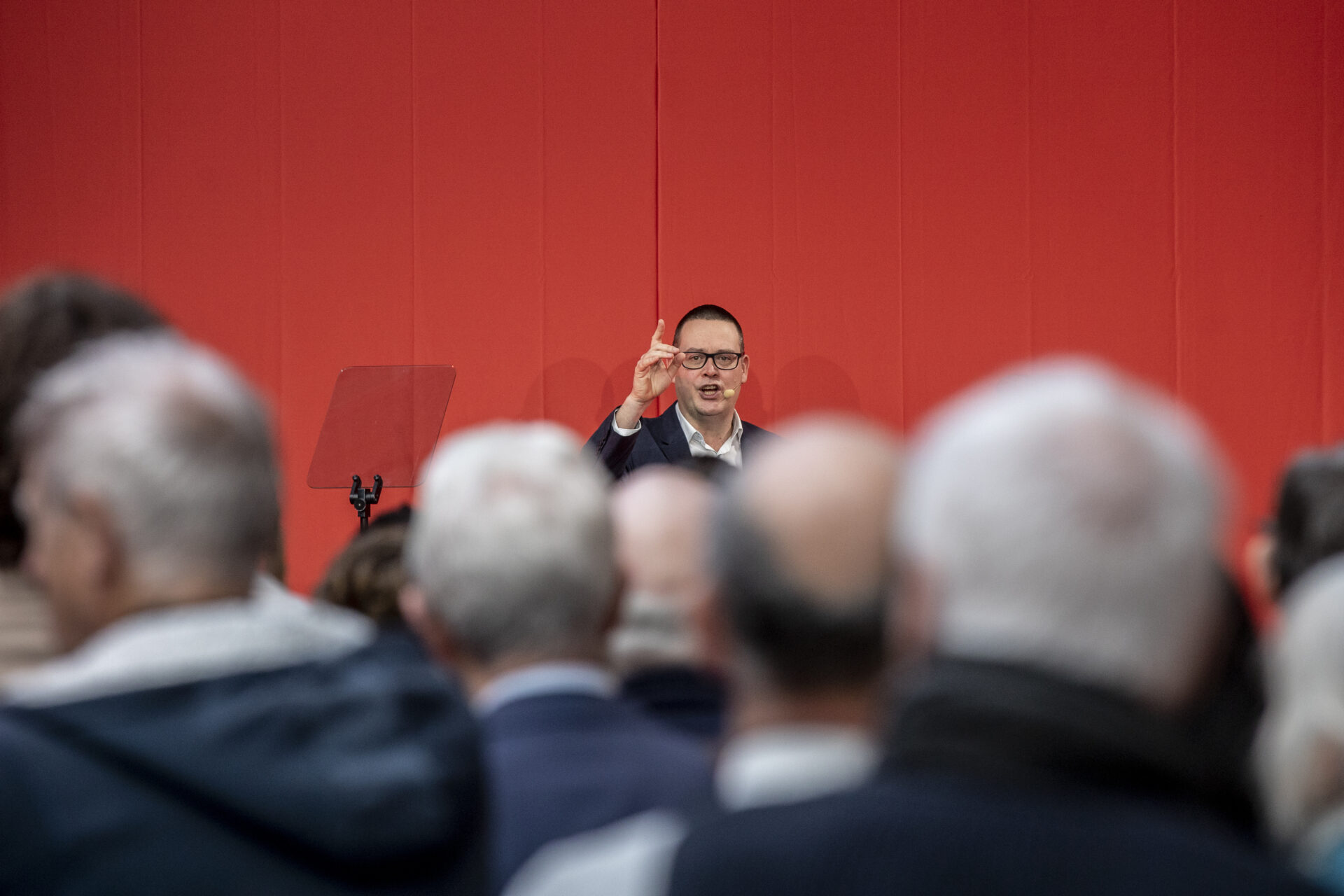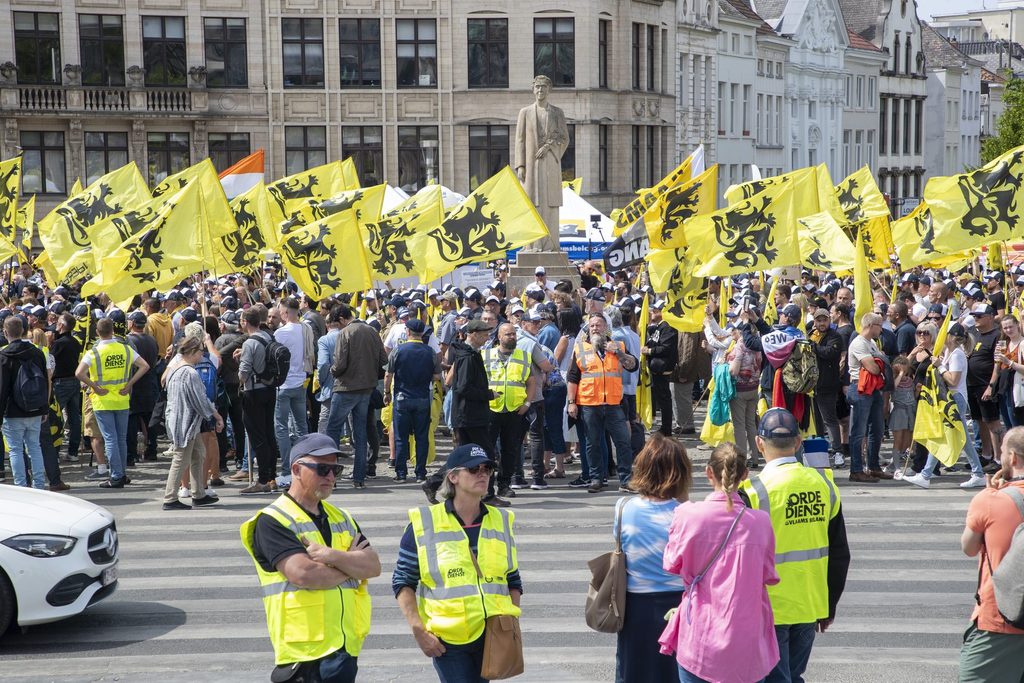Ahead of national elections scheduled to take place next year, the political extremes in Belgium are surging ahead in the polls, a study conducted by Le Soir and Ipsos concluded on Saturday.
Far-right Flemish nationalist party Vlaams Belang (VB) continues to dominate in Flanders, while the radical left Workers Party of Belgium (PTB/PVDA) continues to make inroads in Wallonia and Brussels.
Vlaams Belang now enjoys 22.7% voting intention as of June, slightly down from previous polls but still far ahead of any other party in the region. The party has enjoyed stable support over the last few years, playing to Flemish residents' concerns over immigration and security.

Vlaams Belang MP Filip Dewinter. Credit: Belga/Jonas Roosens
The far-right Flemish party is one of the biggest spenders on political advertising, dispersing €870,085 between January and May this year, around 20% more than in the same period last year. Vlaams Belang excels on social media, especially Facebook.
In Belgium’s French-speaking regions, the PTB has made blistering progress over the last few years. While the Socialist Party (PS) remains the most popular party by voting intention in Wallonia (25.7%) and the centre-right MR party (Mouvement Réformateur) in Brussels (19.9%), the PTB’s vote share continues to tick up in both regions.

PVDA - PTB chairman Raoul Hedebouw delivers a speech at the new year's reception of Belgian far-left party PVDA - PTB, in Brussels, Sunday 15 January 2023. Credit: BELGA PHOTO/ HATIM KAGHAT
The new Ipsos poll reveals how the PTB has cemented itself as the new party of the French-speaking left in Belgium, amid growing concerns by some voters that the PS had strayed from its socialist roots, especially in Flanders.
The PTB now enjoys an 18.9% voting intention in Wallonia and 17.6% in Brussels. In Flanders, the party also has a 10.3% share, almost double what it obtained in 2019. The PTB, which is one of the only true national Belgian parties, have served as a fierce source of left-wing opposition to the Federal Government.
Swimming against the current
Political experts say that a shift towards the political extremes is being observed across Europe, especially amidst a context of growing populism and discontent with inflation and the so-called political ruling class.
Related News
- Big spenders: Flemish political parties spend €2.5 million on advertising
- Brussels' political parties are discussing how to avoid threat posed by N-VA
While in French-speaking regions, established parties such as MR and PS still enjoy the largest support, these parties will need to adapt their communications to attract a new generation of disenfranchised voters, who are increasingly pushed to the wings of Belgian politics.
In Flanders, the consistent success enjoyed by VB equally poses a problem for mainstream parties such as Vooruit and the CD&V. While parties have agreed to form a cordon sanitaire to prevent the far-right Flemish party from entering into a power, fragmented political alliances and difficult government building makes the party’s exclusion increasingly taxing on its rival parties.
The survey produced by Le Soir and Ipsos only shows indicative estimates about the electoral success of each party. In reality, the run-up to the 2024 elections means that the true picture is likely to evolve quickly. Mainstream parties will be hoping to claw back the electorate that it has lost to these two rapidly growing parties.

